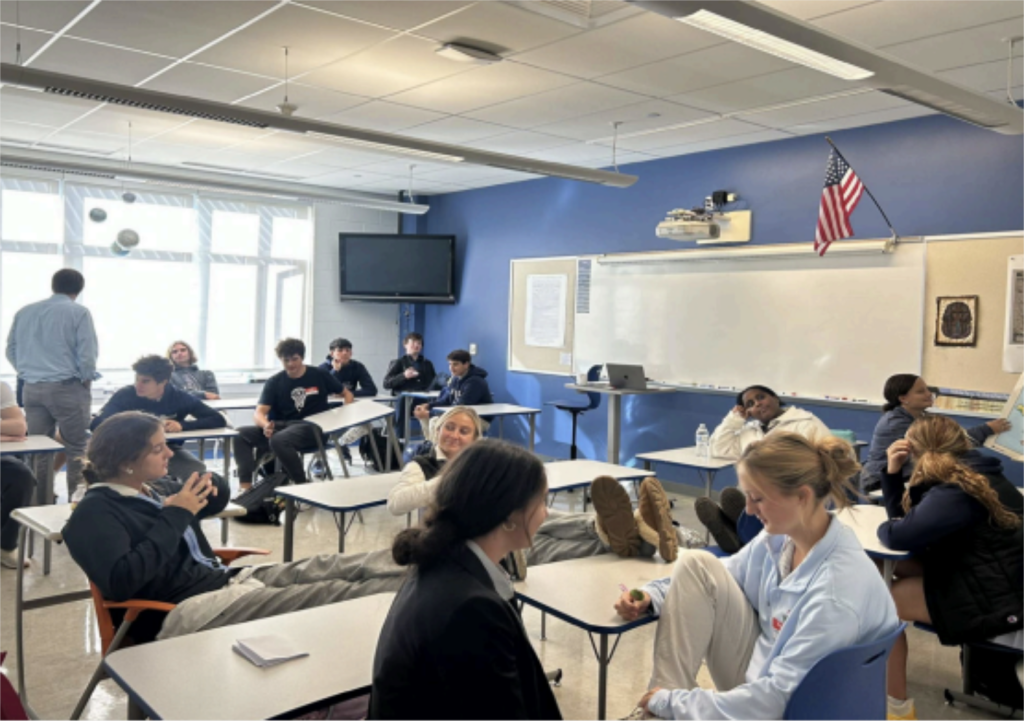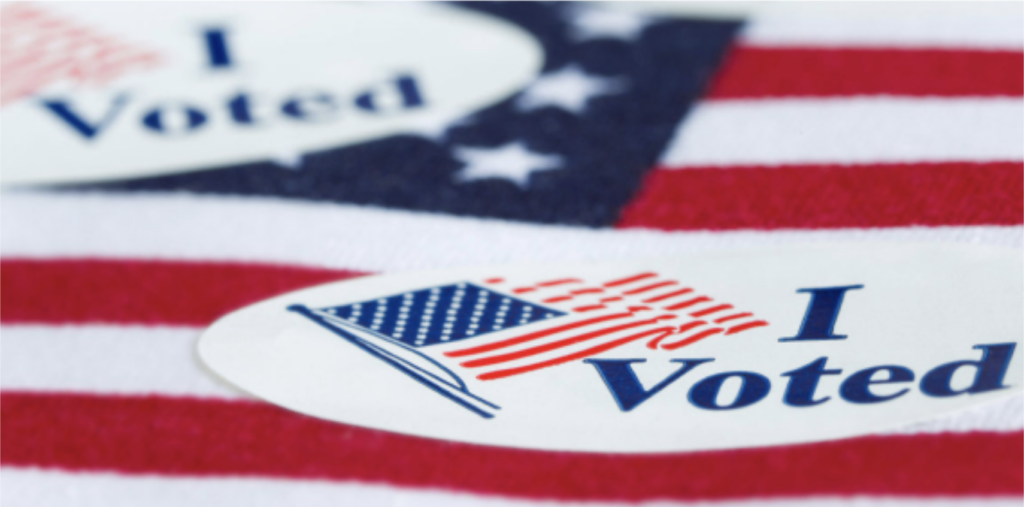Tory Lynn ’25
With less than one week until the 2024 elections, political conversation about the races is reaching the halls and classrooms of EA. As the past months have been filled with suspenseful Vice Presidential selections and enthusiastic competition between the candidates, students and teachers are eager to lean into the important discussions surrounding the elections. Recently, many students have engaged in discussions in classes and clubs with a strong emphasis on civil discourse.
Upper School History Teacher David Mercante explains that many students have remained mature about handling the election in an academic setting. He states, “Most people are doing a good job of dealing with these subjects in an academic way. Although people have very different opinions on what they would want to see from the election, the results they’re hoping for, what they want the next President to do, and the policies they want the next President to put into place,” they maintain “agreeable” conversation. Elle du Pont ’25 affirms that “most discussions going on are respectful” because “most people understand how to have a reasonable debate.” Additionally, as a leader of Young Democrats, she advocates that their “main goal is just to foster overall civic engagement and encourage factual conversations that can help students come together” when participating in the conversations around the election.
Mercante also reflects on the eagerness that exists to talk about the pressing political issues that are part of the coming election: “Most of the students appreciate the opportunity to speak their mind on some of these issues…there’s an eagerness to engage with the big topics that are being discussed on the national scene.” He recognizes that especially “students that are old enough to vote” are very “passionate” and “enthusiastic” about the topic and the chance to engage in this conversation. In fact, “even the ones that aren’t old enough to vote are very invested in the election,” which stresses the importance of a forum in which students can discuss these matters productively.
Asher Wan ’26, who is in Mercante’s AP Gov class, reflects on the opportunities in class to have political discussions, “I think it’s pretty cool that students are engaging with the curriculum while also expressing their own takes on things … I think it’s great for students [to be] more educated about the world around them but also be able to express their own ideas on U.S. politics.” Regarding the nature of the discourse at EA, Elle du Pont ’25 says that students “definitely have different opinions about the candidates, but…many people across the spectrum are generally unhappy with the overall election, which has brought them together in a way.”

Photo courtesy of Gelila Getachew ’25
Doing his part to facilitate and satisfy his students’ curiosity, Mercante also explains that because it’s an election year, he is incorporating “a mini-unit on the presidential election and just on elections in general.” His AP US Government class is “talking about things like how the Electoral College works, about congressional elections and how they work…about the primary system…and what makes a poll; how pollsters get their data, and what makes a poll more reliable or less reliable.” He hopes that “in the last few days before the election, this will help people kind of make sense of all the information that’s being thrown their way.” Additionally, political conversations are facilitated with assignments he created: “different students are assigned to find a current event story and report on it,” so “a lot of the big issues in the campaign for this year” come up. Jayden Waters ‘26, an AP Gov student, recognizes that these assignments do create political discussion, often from opposing sides, saying that students “often disagree because of their different views”, though the conversation “is respectful.” Wan also feels similarly about the assignments, saying, “We take articles from the New York Times or Wall Street Journal, and students gather at the beginning of class, maybe for 20 minutes, and we just discuss modern-day politics, and everyone gets to have a say in the conversation … A lot of people have different views, but I think that’s the beautiful thing about government because there isn’t just one right answer.”

Photo courtesy of Commonwealth of Pennsylvania
Now more than ever the election is present in life at EA. Although, as du Pont recognizes, “there is always room for improvement,” EA’s different views are not separating them, but bringing them together to inspire good, important conversation.